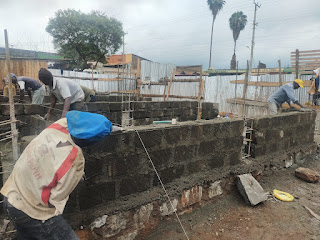The Cost of Building: Factors to Consider
This is Why Building Is So Expensive
Building your dream home or any construction project comes with a hefty price tag, and it's not just about the materials and labor. Numerous factors contribute to the high costs associated with building, many of which are often overlooked. Let's delve into some of these factors to understand why building is expensive.
Foundation Challenges: The foundation is the backbone of any structure, and building on challenging terrains such as loose soils or black cotton soils can significantly escalate costs. Specialized engineering solutions and materials may be required to ensure stability, adding to the overall expenses.
Roofing Complexities: The design and materials used for roofing can heavily impact costs. Opting for intricate designs or high-quality roofing materials can drive up expenses substantially. Additionally, factors like the size and slope of the roof also play a role in determining costs.
Plumbing and Electrical Requirements: Installing plumbing and electrical systems involves more than just laying pipes and wires. From sourcing water connections to installing water storage solutions like tanks or wells, and ensuring proper sewage disposal with septic tanks or biodigesters, each step adds to the expenses. Similarly, electrical connections, whether grid-based or solar-powered, entail significant costs for wiring, equipment, and installation.
Fittings and Finishes: The choice of fittings and finishes can significantly influence the final cost of a building project. High-end finishes like luxurious wardrobes, custom cabinets, and premium flooring materials come with a hefty price tag. Balancing aesthetic preferences with budget constraints can be a challenge for many homeowners.
Exterior Features: Fencing and landscaping are often overlooked but essential aspects of building projects. Installing fences for security or aesthetics and landscaping for enhancing curb appeal can eat into the budget, especially if elaborate designs or high-quality materials are desired.
While these are some of the primary factors contributing to the expense of building, it's crucial to recognize that every project is unique, and costs can vary depending on various factors such as location, size, and specific requirements. Moreover, attempting to cut corners or compromise on quality to minimize costs can sometimes lead to more significant expenses in the long run due to repairs and maintenance.
In conclusion, building a home or any structure is a substantial financial investment, and understanding the factors that contribute to the expenses can help homeowners make informed decisions and plan their budgets more effectively. By acknowledging the various components that drive up costs, individuals embarking on building projects can better navigate the complexities and ensure successful outcomes without breaking the bank.



Comments
Post a Comment